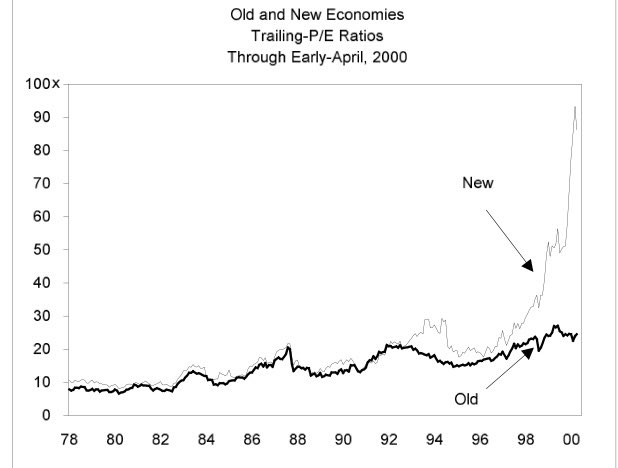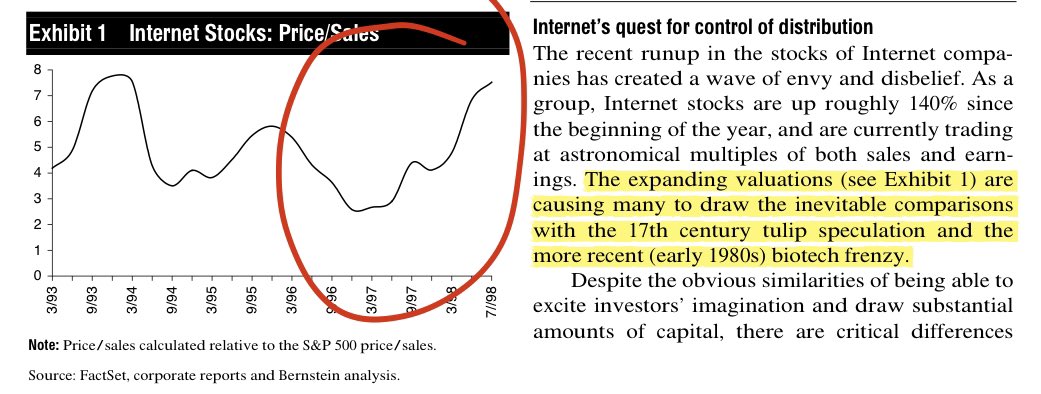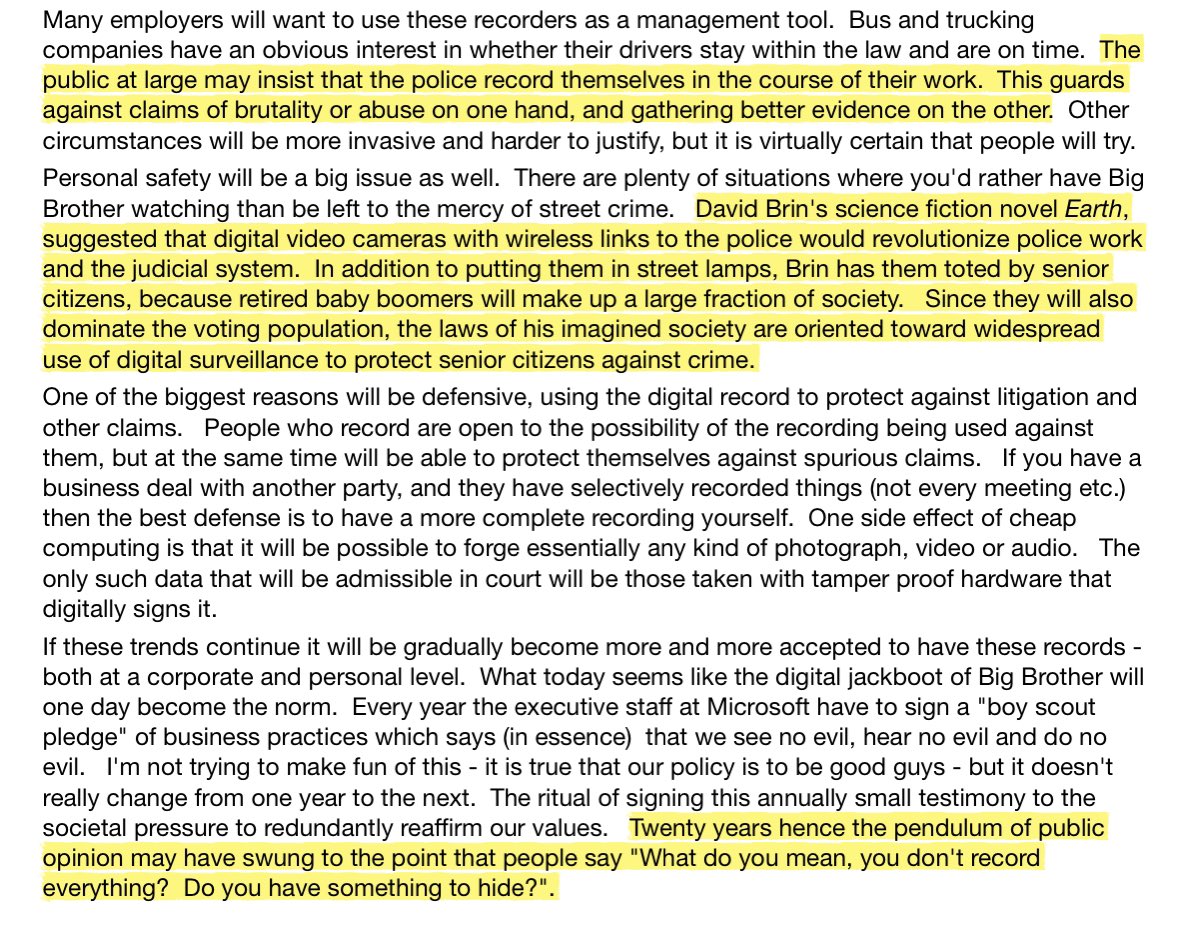1/ I always joke that predicting the future of tech is way easier than most people think... the hard part is making any money off those predictions
This 2001 paper ("Big in Japan: iMode and the Mobile Internet") is one of the best examples I've ever seen- core.ac.uk/download/pdf/3…
This 2001 paper ("Big in Japan: iMode and the Mobile Internet") is one of the best examples I've ever seen- core.ac.uk/download/pdf/3…

2/ Looking back, the modern smartphone era didn't begin until the launch of the iPhone in 2007
But this paper makes it clear: even in 2001, it was obvious to pretty much everyone that the future of the internet was going to be mobile
But this paper makes it clear: even in 2001, it was obvious to pretty much everyone that the future of the internet was going to be mobile
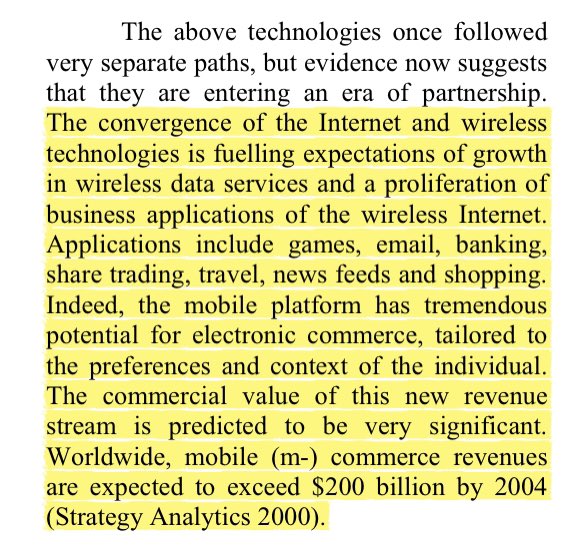
3/ Moreover, all eyes pointed to Japan as a template for the rest of the world: in 1999, the Japanese telco NTT DoCoMo had launched "iMode," the world's first mass-adopted mobile internet service. By 2001 it had over 20 million users (15% of the Japanese population) 

4/ iMode was vertically-integrated: NTT DoCoMo bundled 2G internet connectivity with its own proto-smartphone hardware (in partnership with OEMs), custom web browser, proprietary web standard (a modified version of HTML), and in-house index (a portal of 1480 'approved' websites) 
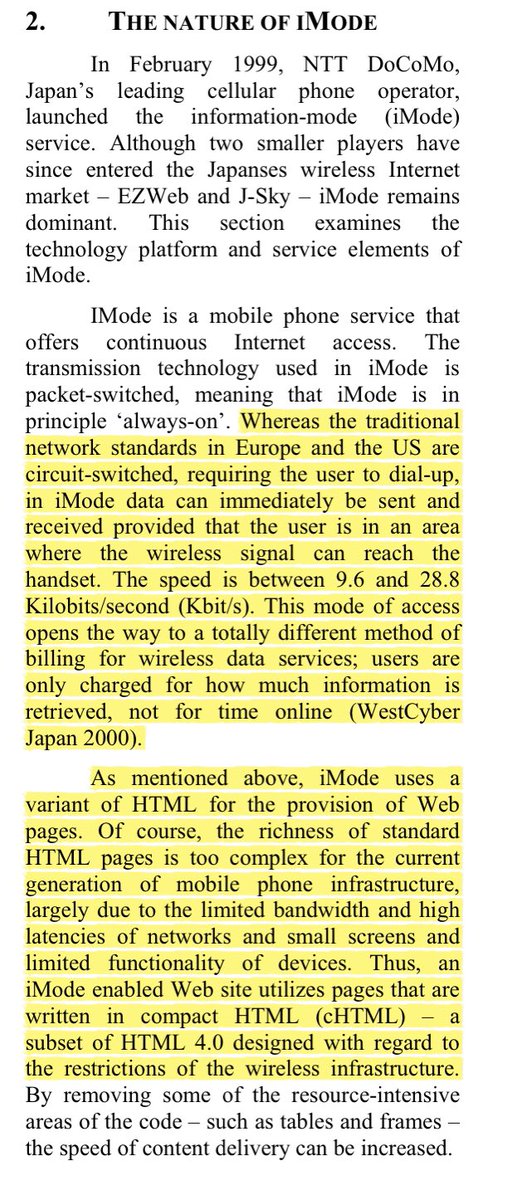
5/ In case it's not clear, this is super weird by today's standards! The telcos didn't just control internet service - they basically controlled the INTERNET
To get your website on iMode, you had to pay DoCoMo an upfront fee + a *9% take rate*. This was $3.4B business in 2001
To get your website on iMode, you had to pay DoCoMo an upfront fee + a *9% take rate*. This was $3.4B business in 2001

6/ Imagine you're a tech executive or investor looking at Japan in 2001. What's the takeaway?
You should be getting into the telecom business! After all, who wouldn't want to get their very own 9% cut of what is obviously going to be a trillion dollar mobile internet TAM?
You should be getting into the telecom business! After all, who wouldn't want to get their very own 9% cut of what is obviously going to be a trillion dollar mobile internet TAM?
7/ Of course, that's not what happened. Instead, Japan proves to be a dead end
6 years later, Apple launches the iPhone... and turns the tables on the telcos by seizing full control over the hardware, the OS, the browser, and the app store. Telcos remain a dumb pipe to this day
6 years later, Apple launches the iPhone... and turns the tables on the telcos by seizing full control over the hardware, the OS, the browser, and the app store. Telcos remain a dumb pipe to this day
8/ What's the lesson here?
Predicting the general contours of the future is easy ('people will browse the internet on their phones'). However, it's the details that ultimately matter, ie who / when / where / why?
Case studies can give false comfort. Precedent is not destiny!
Predicting the general contours of the future is easy ('people will browse the internet on their phones'). However, it's the details that ultimately matter, ie who / when / where / why?
Case studies can give false comfort. Precedent is not destiny!
• • •
Missing some Tweet in this thread? You can try to
force a refresh









